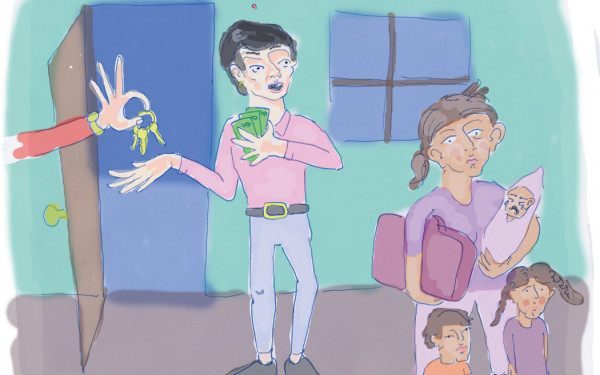Concordia Promised $10 Million for Research on Smart, Sustainable Cities
University Strives to Become World Leader in Transdisciplinary Field
Most Canadians live in cities.
In 2011, more than 80 per cent of the Canadian population lived in urban areas, StatsCan found. And while the government body says that the number of rural residents is relatively stable, the number of those living in more densely-populated areas is steadily increasing. They classify this urban migration as a “megatrend.”
In hopes of staying ahead of this trend, Concordia is looking for a Canada Excellence Research Chair in Smart, Sustainable, and Resilient Cities and Communities. That person will receive $10 million over seven years in federal funding for their work.
“Sustainable and smart cities are the reality today,” said Christophe Guy, the university’s vice-provost in research and graduate studies, explaining why they chose to seek a CERC in that area.
“We already have a lot of expertise in that field, especially in engineering,” he continued. “We want to be one of the leaders in the world in that field.”
After putting forward their proposal, Concordia was one of nine universities in the countries selected to nominate a CERC this year, he explained. This chair will be the university’s first.
Now that Concordia’s proposal has been accepted, the university has until November 2018 to nominate a chairholder. If they do not succeed at doing so, the university will not see any of the funding.
Another caveat is that the yet-to-be chosen chair will almost certainly be from outside of Canada. Guy explained that the purpose of the CERC program is to attract top talent to Canada and to increase the strength of the country’s science and technology fields.
But Concordia wants to look at it more holistically, Guy said.
“The idea of smart cities and sustainable cities is to, of course, design buildings, […] design cities, but you have people who live in them,” he explained. “The social sciences need to be involved to a certain extent.”
That’s why in addition to the future CERC, Concordia is hiring what it’s calling a cluster of tenure-track professors from across disciplines whose work is of the same vein, including one in philosophy, one in urban biodiversity, and one in materials and materiality. The Fine Arts will be involved in the cluster, as well, Guy said.
That type of transdisciplinary work, Guy continued, is “the only way. It’s the way of the future. […] To have a real impact you need to have all the contributions of your experts [working towards] a common goal.”
While research is one of the university’s top priorities—doubling its research is the first of its nine strategic directions, or academic goals—Guy emphasized that engaging students will be a must for the future CERC.
He explained that graduate students will certainly have an opportunity to engage with whomever is selected to fill the role, but undergraduate students who must take on larger scale projects for their degrees might have a chance to get involved too. Teaching may also be in the cards, but only a few years down the line, Guy said.
“That’s our role as a university: to involve students in our research projects.”





_600_375_90_s_c1.jpg)
_600_375_90_s_c1.jpg)